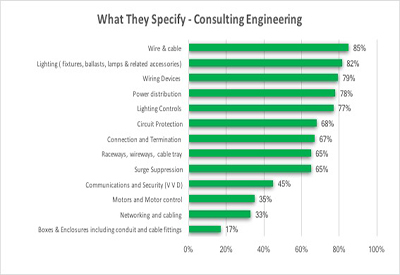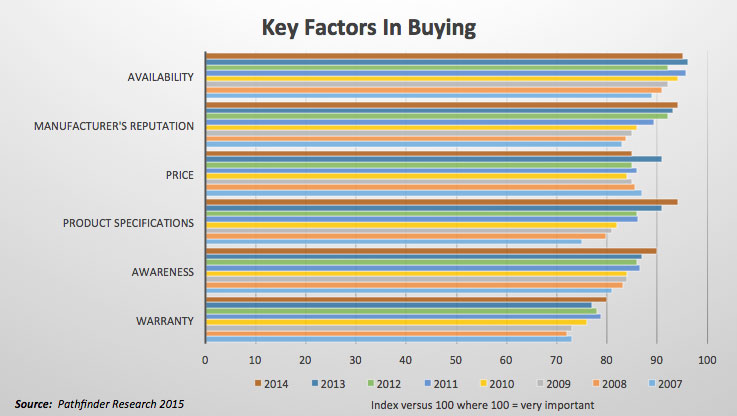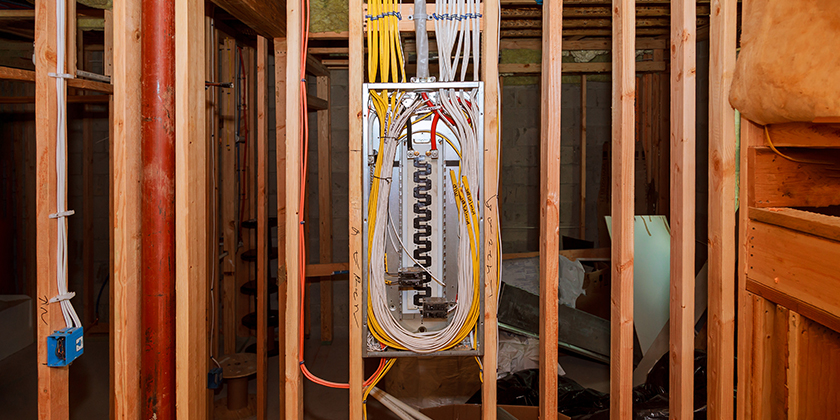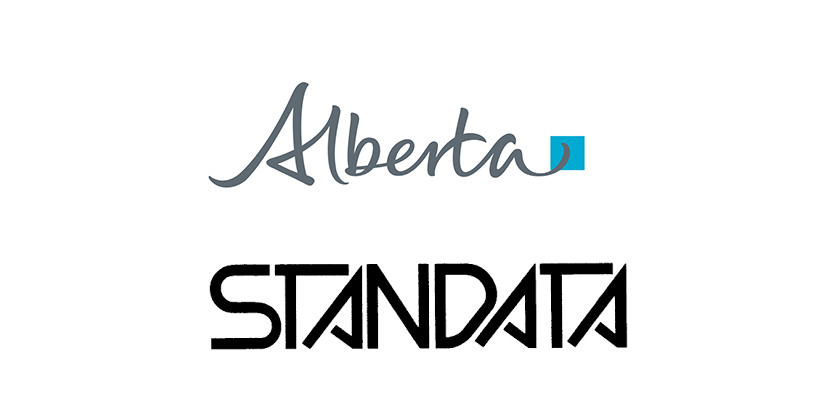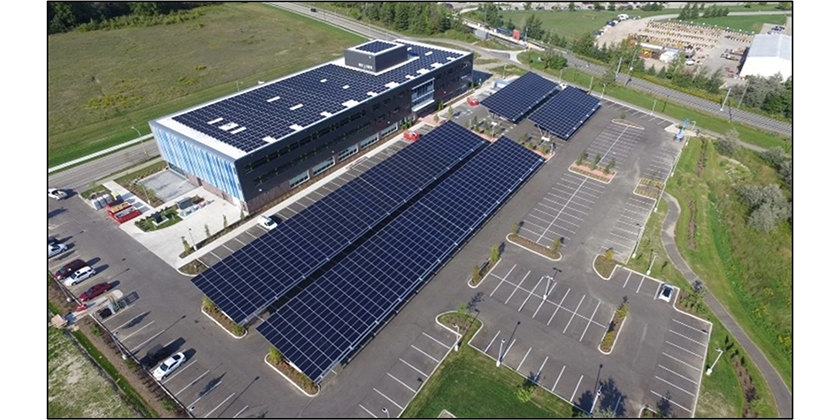Planned Shift from Gas to Electric Heat Required to Avoid High Costs and Emissions: Report
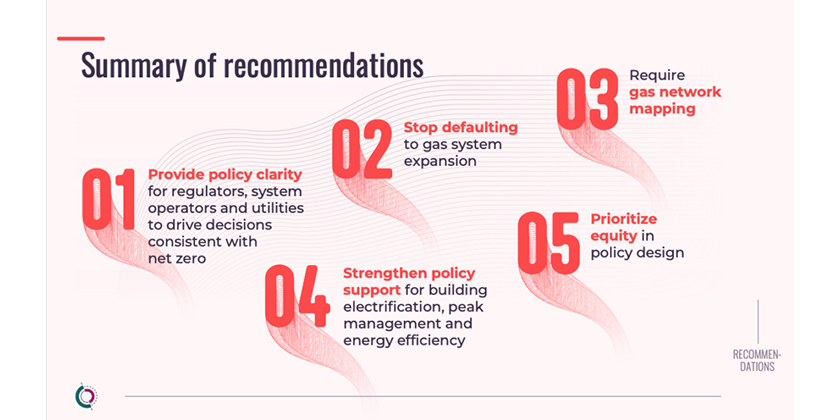
June 14, 2024
New research published today by the Canadian Climate Institute finds that a system-wide shift from gas to electric heat is the lowest-cost path through the clean energy transition.
The report, Heat Exchange: How today’s policy choices will drive or delay Canada’s transition to clean, reliable heat, concludes that provincial government action will be necessary to protect reliability and avoid high costs for consumers as the energy transition accelerates.
The report finds that changing the energy mix for building heat in both homes and businesses—and changing energy infrastructure to support the shift from gas to electricity—will be necessary to reduce emissions from buildings and meet Canada’s climate goals while also minimizing costs. If investment in the gas network continues to grow and gas connections continue to be the default for new buildings, then governments, shareholders, and remaining gas consumers could find themselves on the hook for the costs of overbuilt and underused gas infrastructure, as more people switch to cleaner options.
Heat Exchange presents a case for provinces taking a new approach in planning and regulating electric and gas utility infrastructure to better protect the public interest, now and in the future.
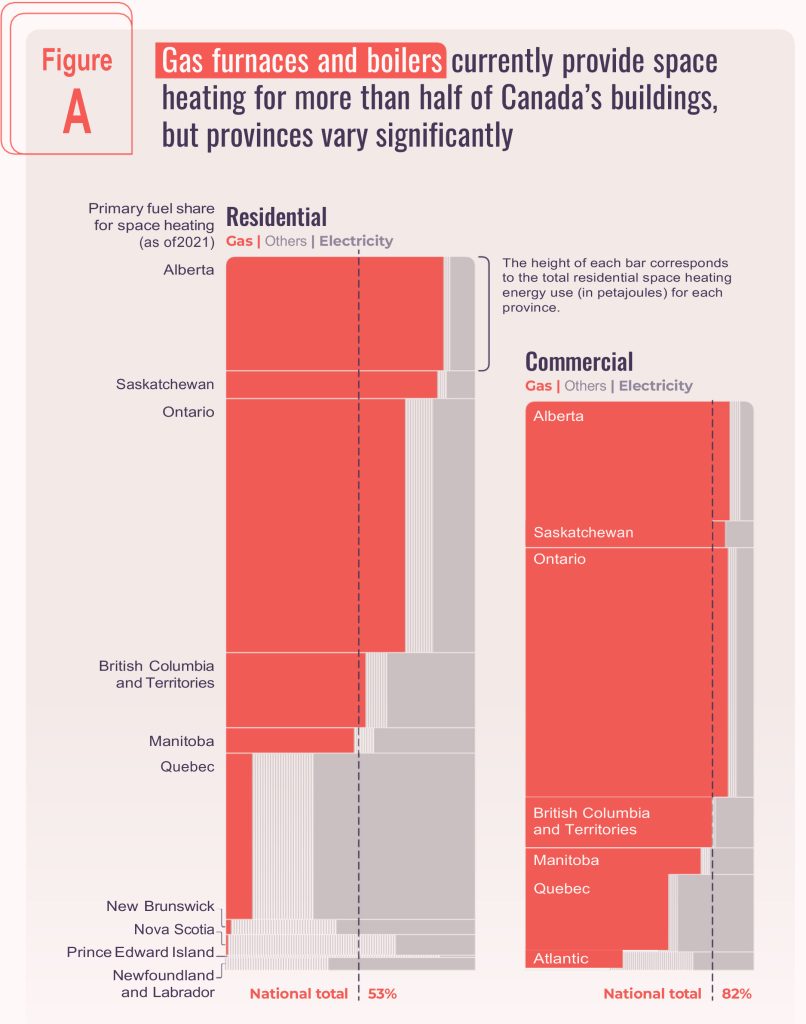
FACTS FROM HEAT EXCHANGE
- In all provinces and scenarios the Climate Institute examined, the lowest-cost pathway to net zero by 2050 for the economy results in electricity becoming the dominant energy supply for building heat.
- Reaching net zero emissions in residential, commercial and institutional buildings means substantial declines in gas use in every province—in places like Ontario, gas usage drops between 89 to 98 per cent from today’s levels. In Alberta, demand drops between 70 and 87 per cent.
- Today, more than five million homes in Canada (34 per cent) already heat with electricity, mostly baseboards. To meet net zero, 99 per cent of home heating in 2050 is projected to be entirely or mostly powered by electricity, including, in some cases, heat pumps backed up by gas in a hybrid system.
- Our research found that a cost-effective energy transition in buildings will mean heat pumps are used to heat the vast majority of homes by 2050. While scarce low-carbon gases like biomethane and hydrogen will likely see some use in industrial buildings,they are expected to play only a marginal role in heating commercial and residential buildings.
More information
Report│Heat Pumps Pay Off: Unlocking lower cost heating and cooling in Canada (September 2023)
Case studies│ Heat Pumps Are Hot in the Maritimes (April 2023), Hybrid Heat in Quebec (April 2023), St Laurent Denied (April 2023)





